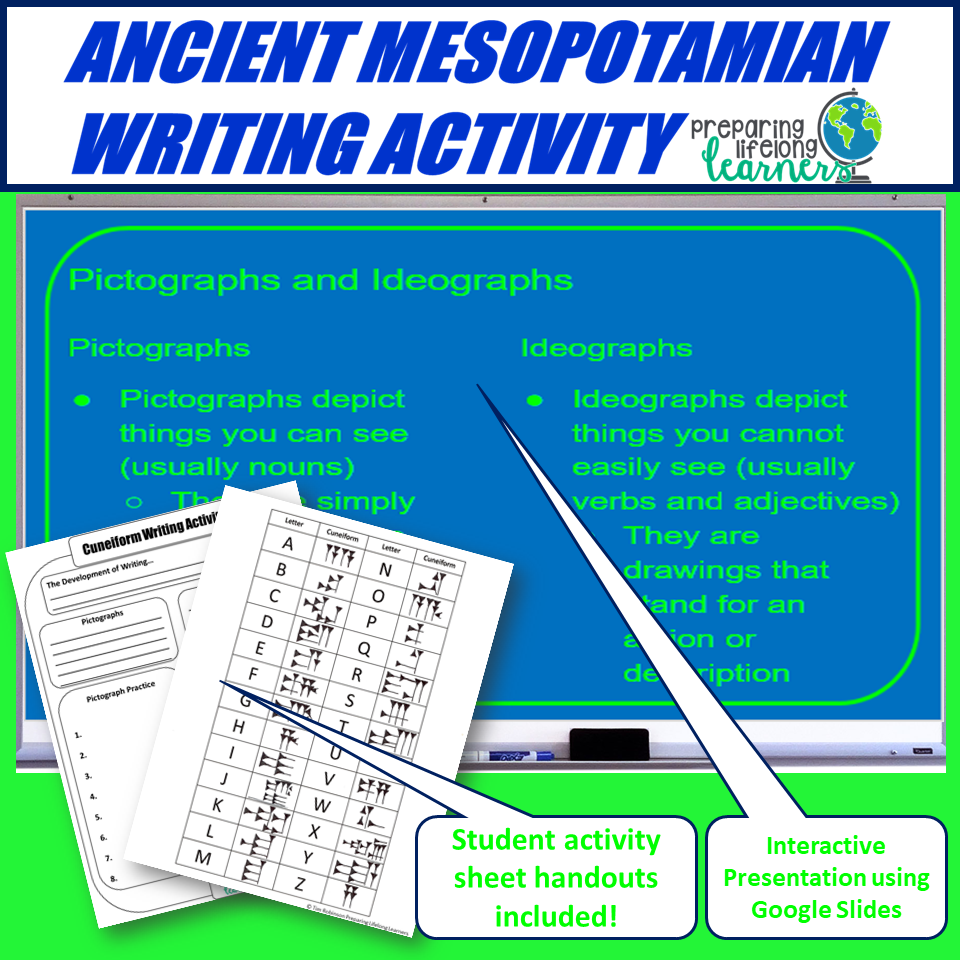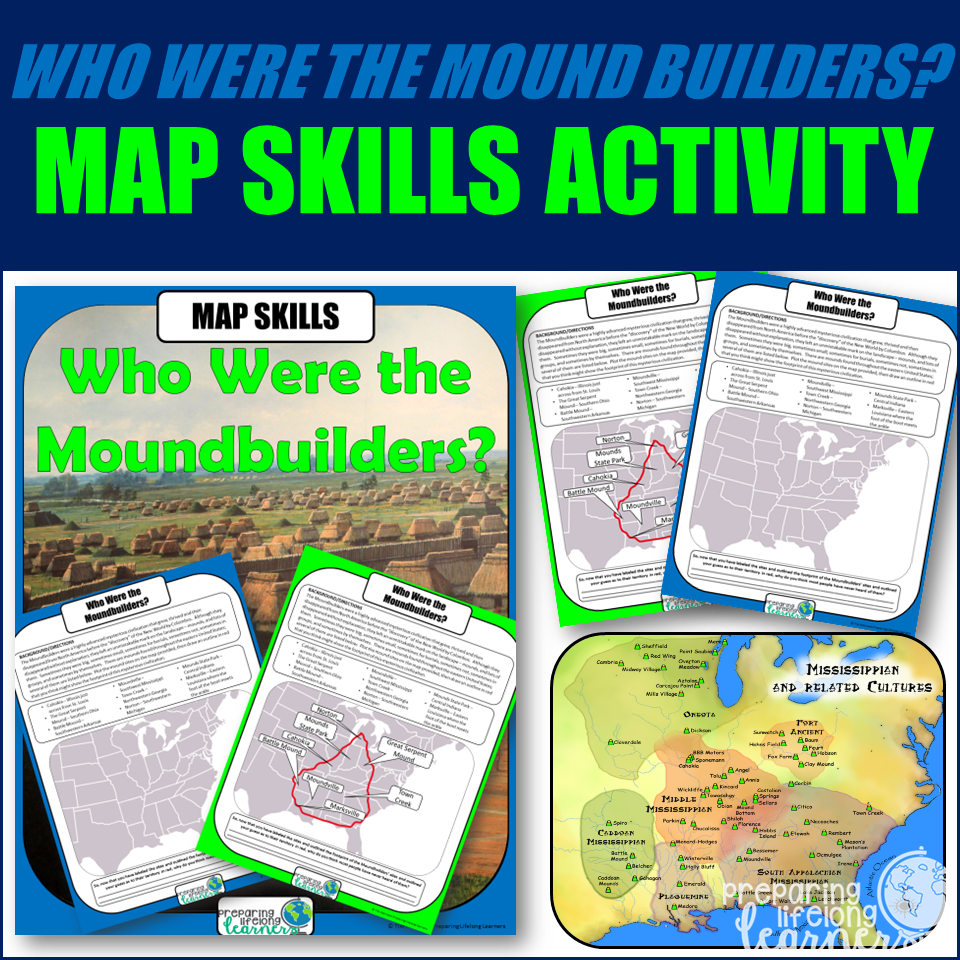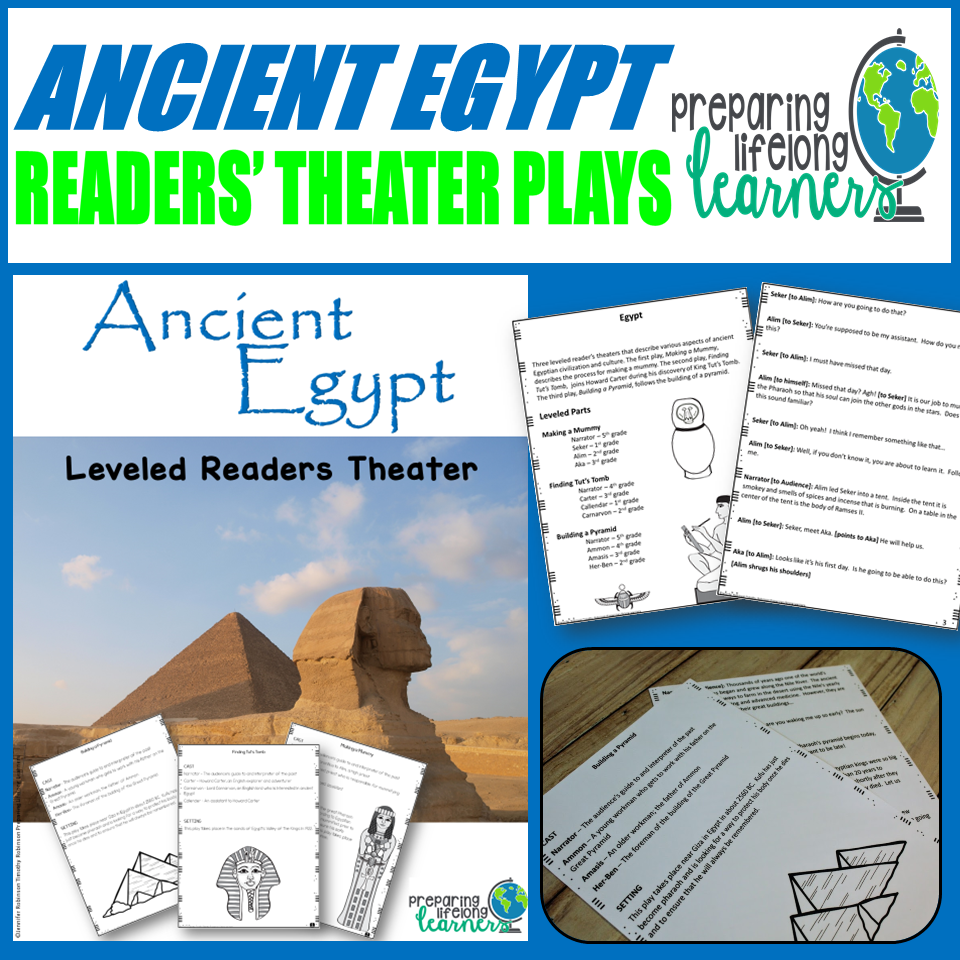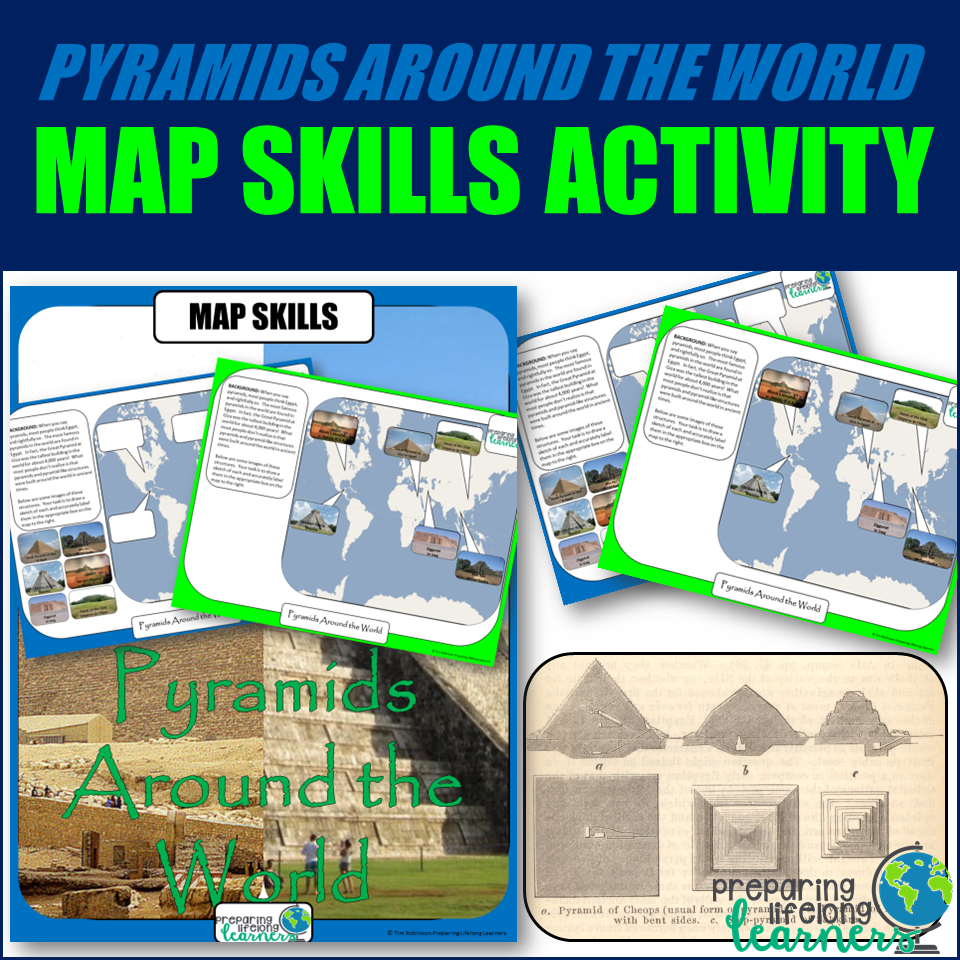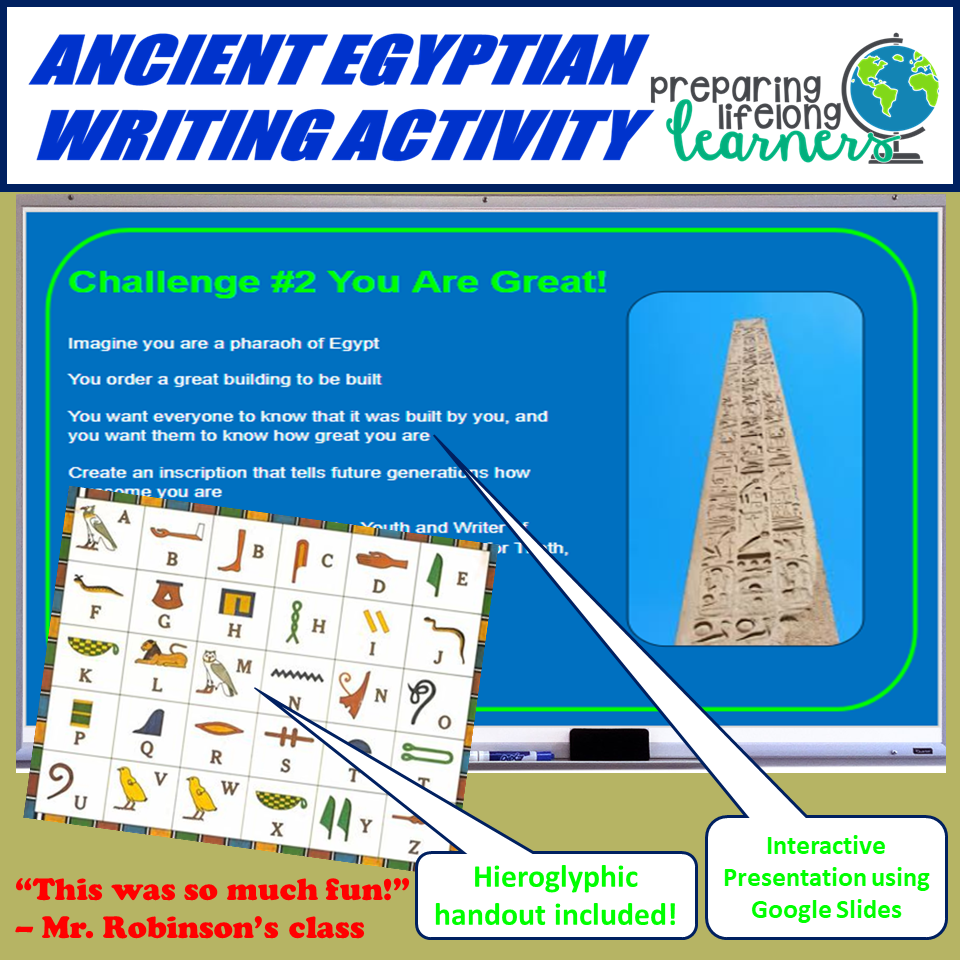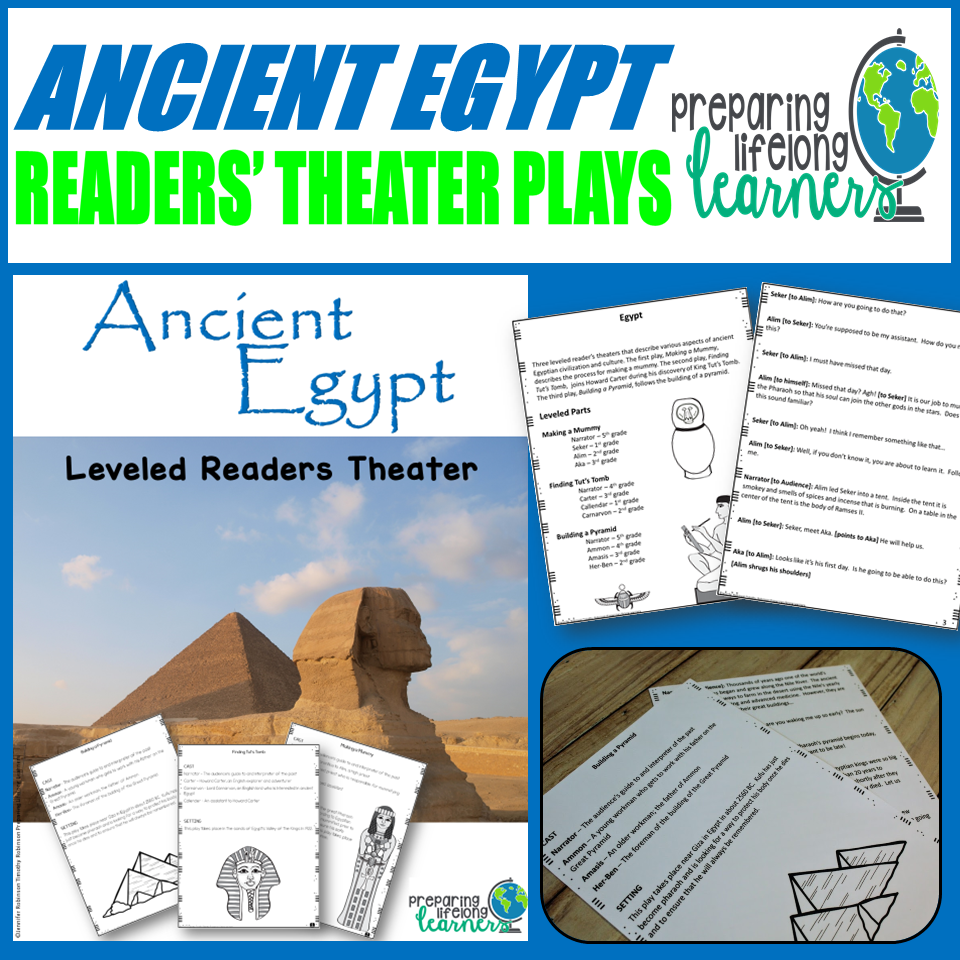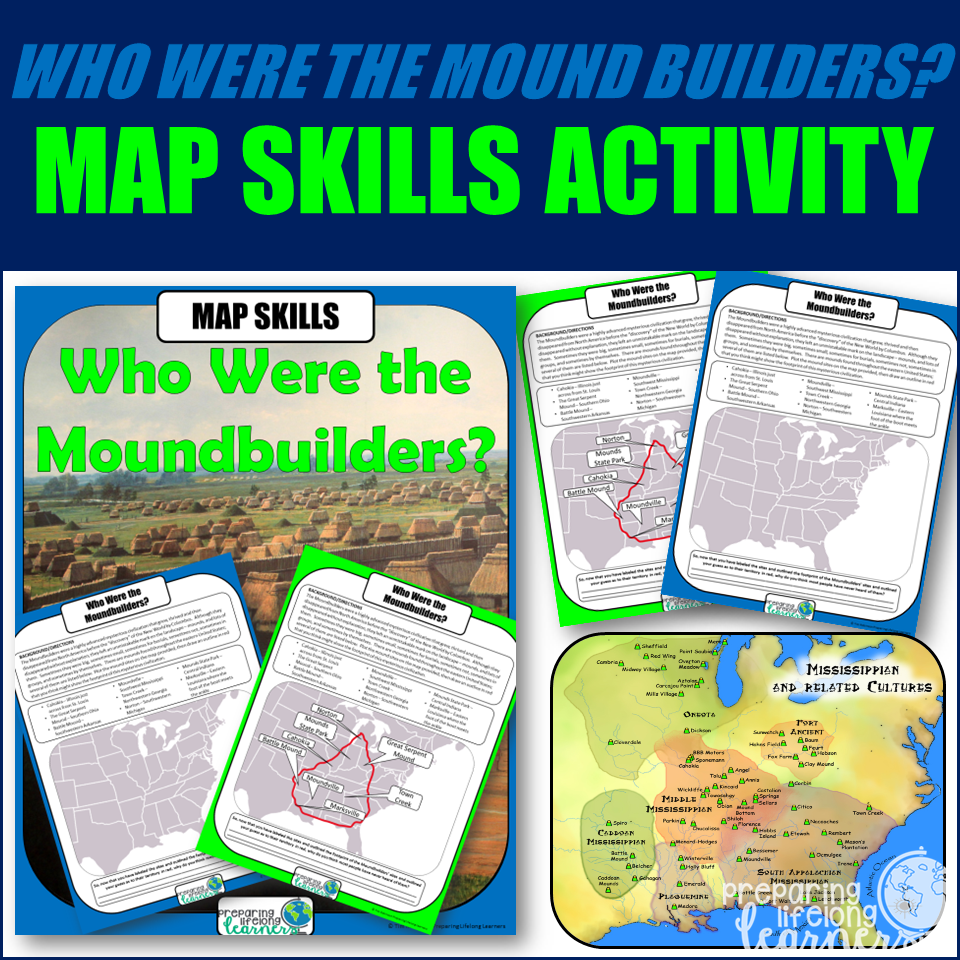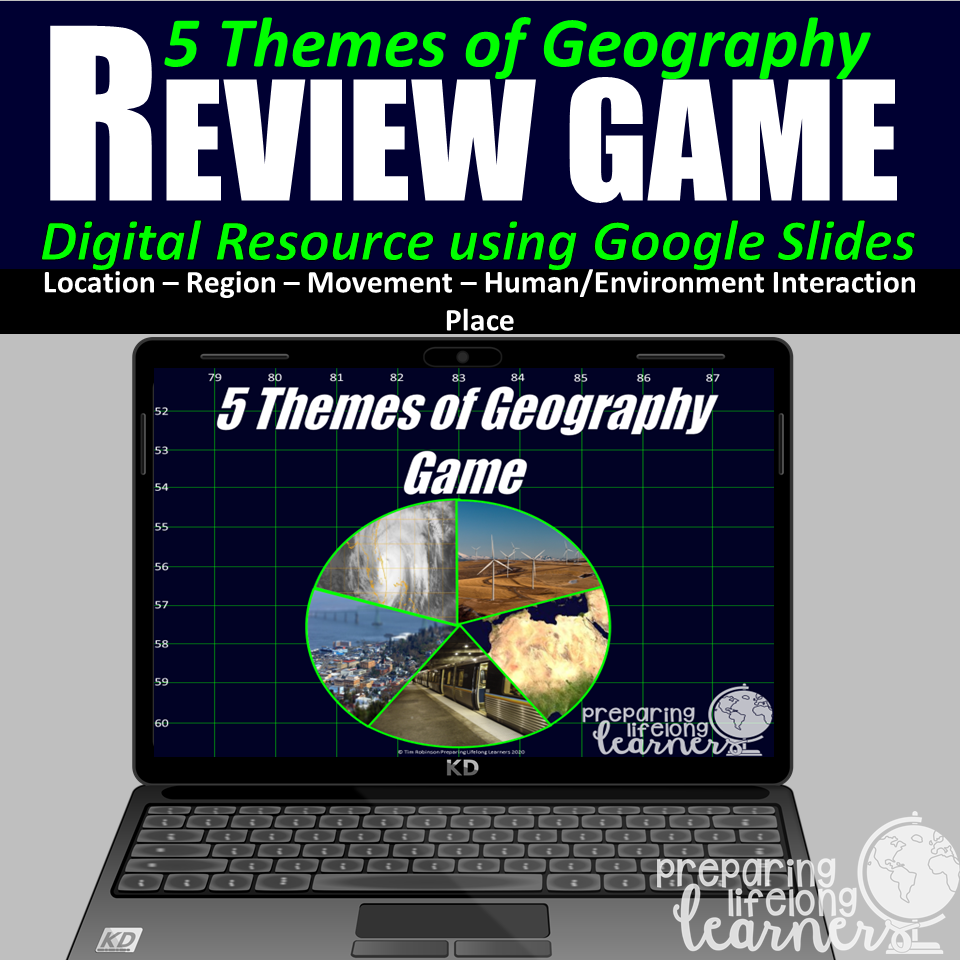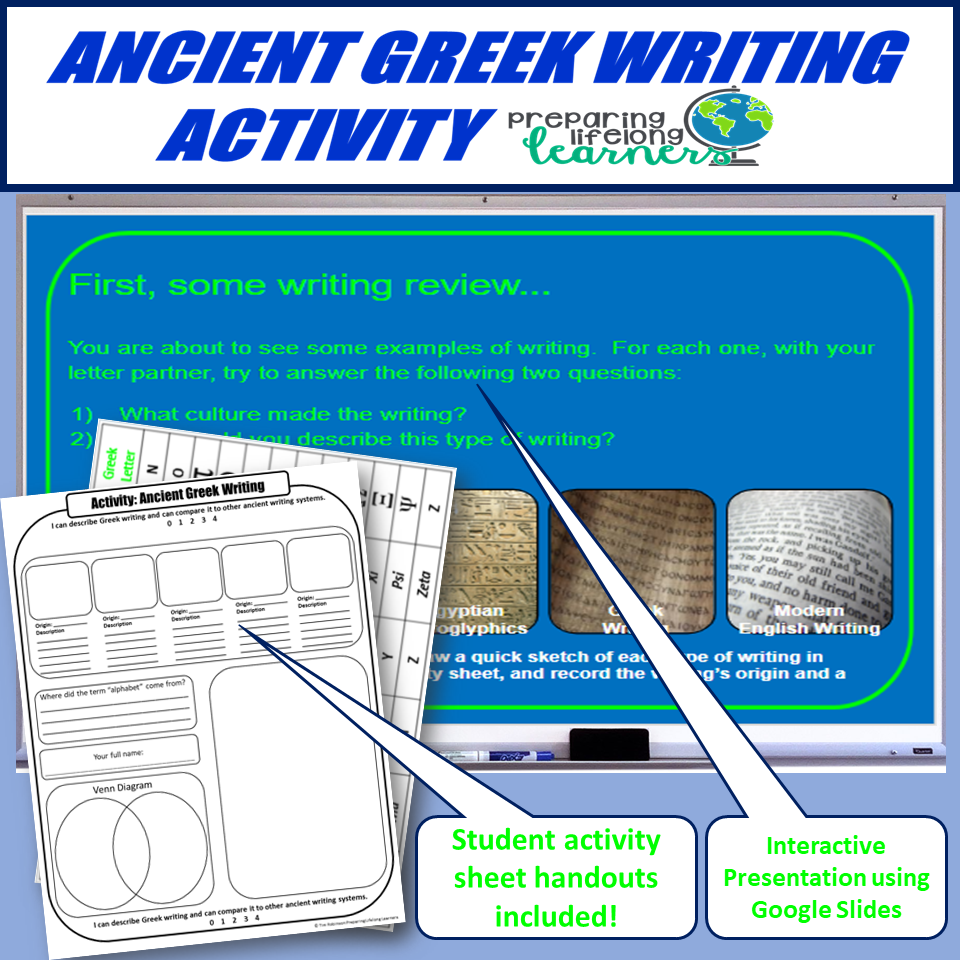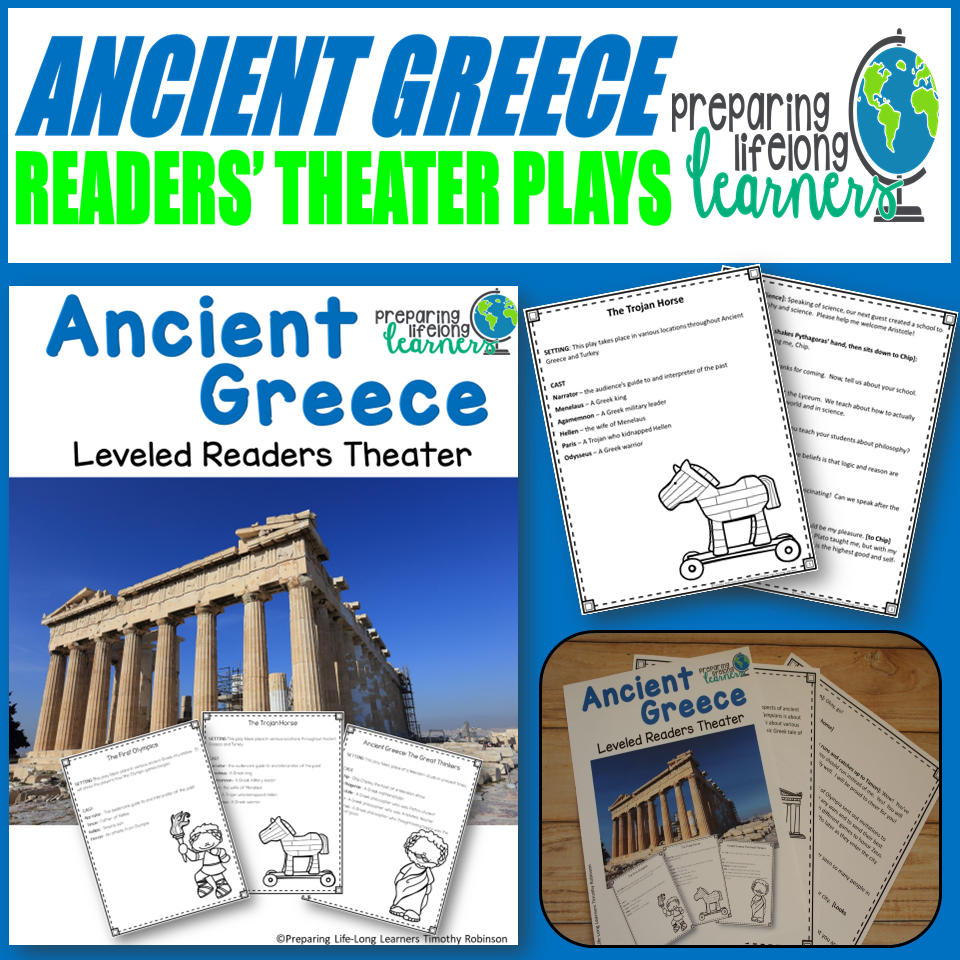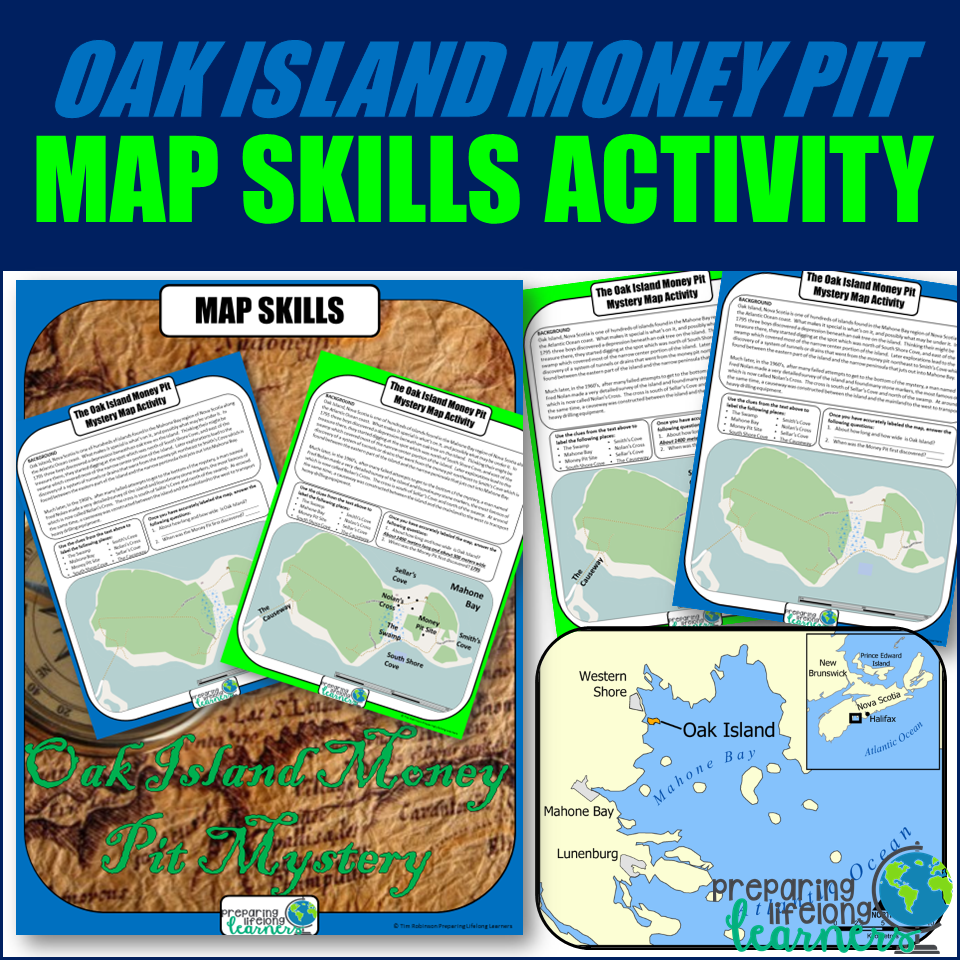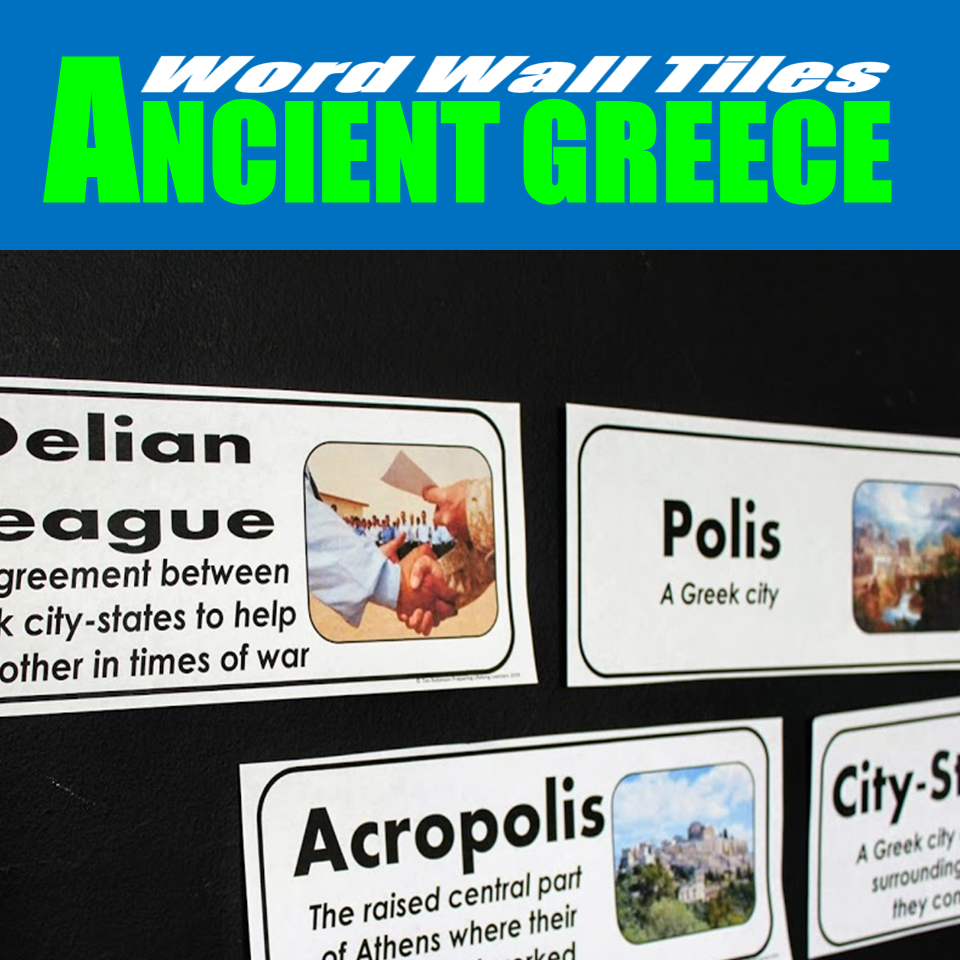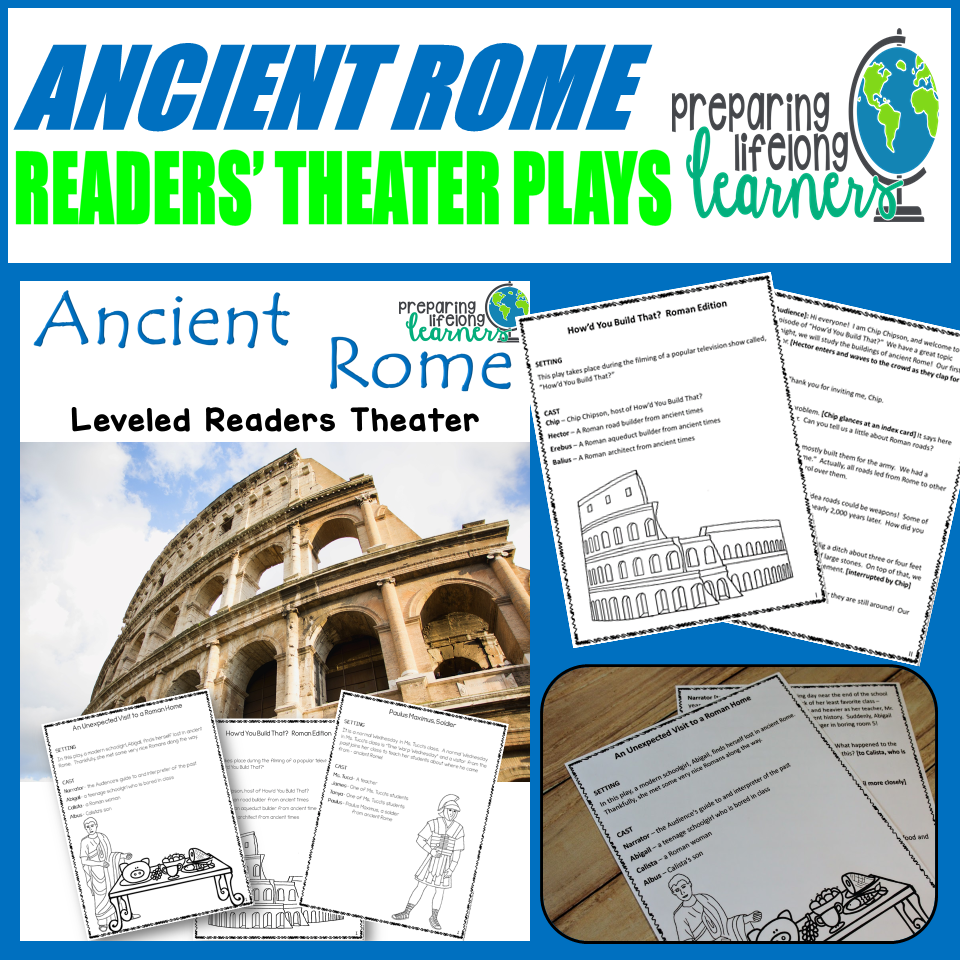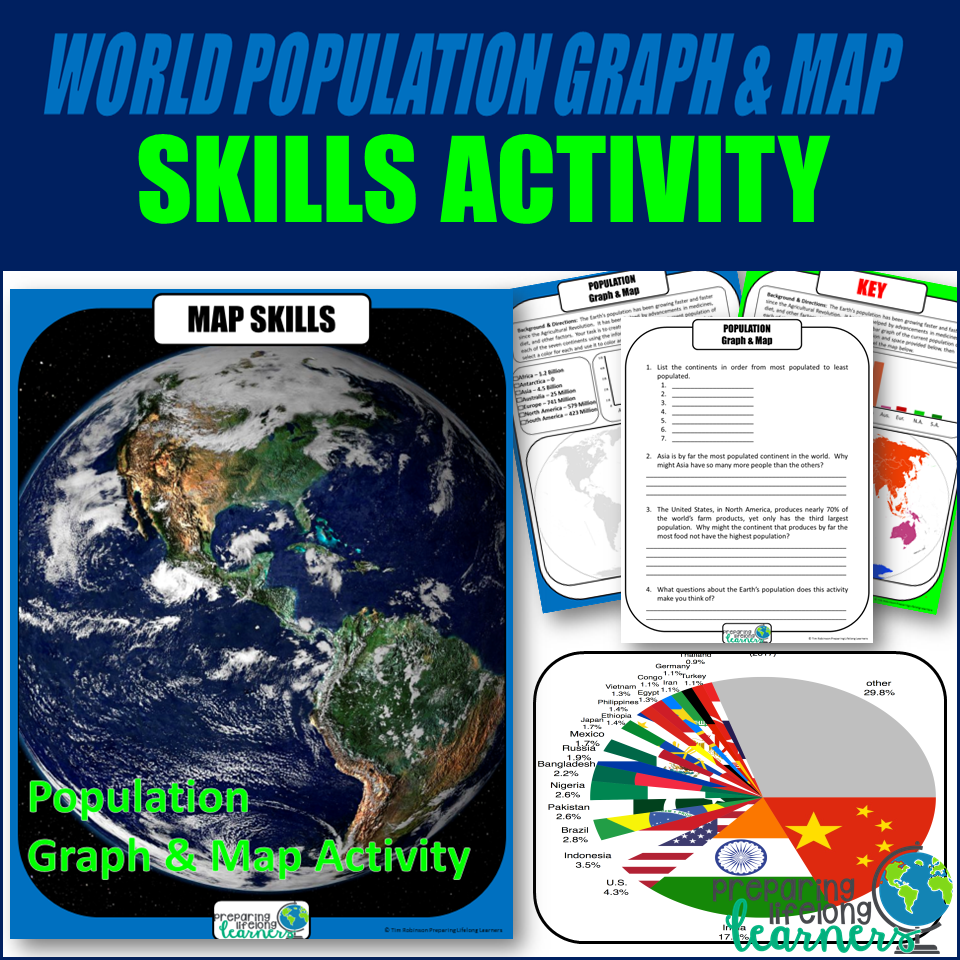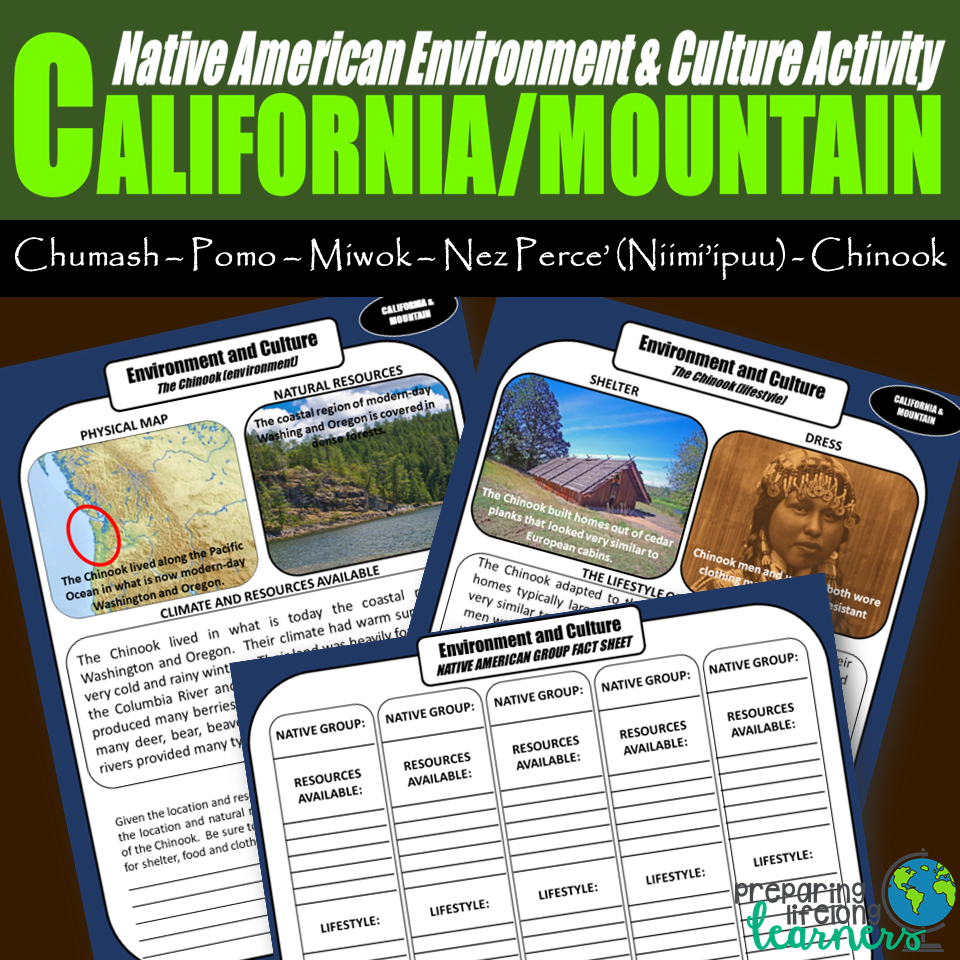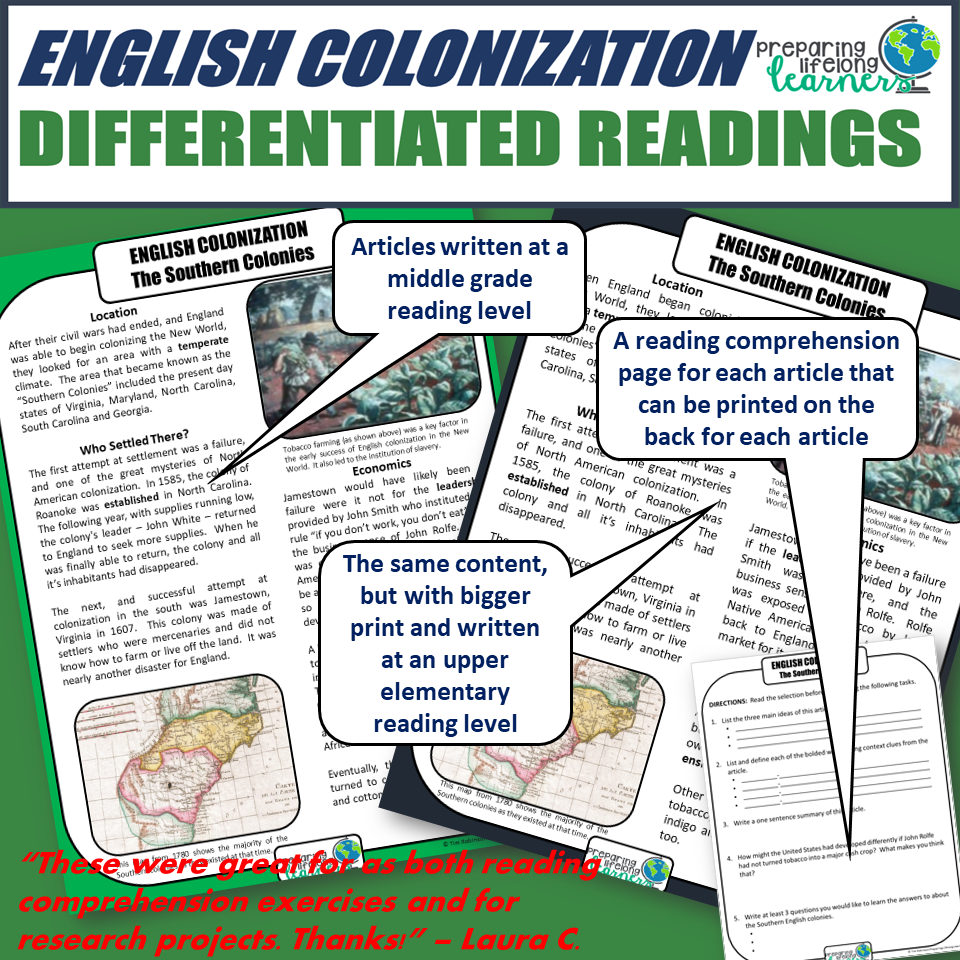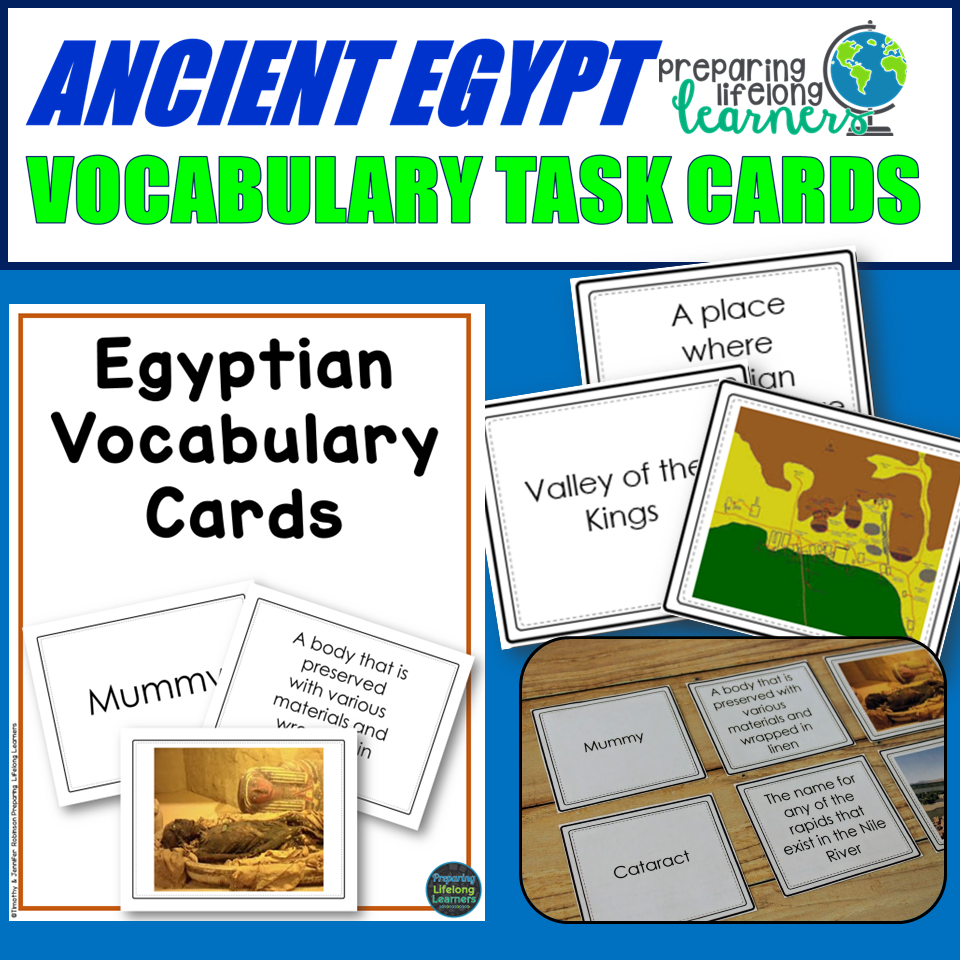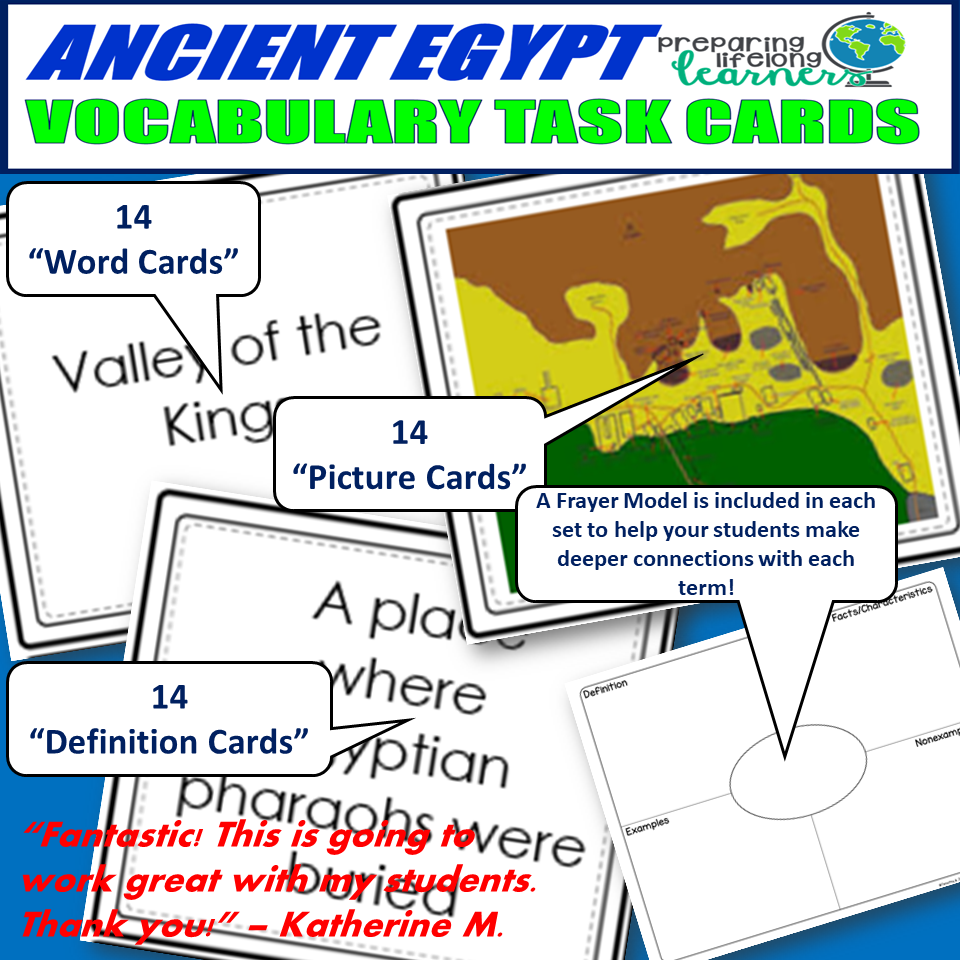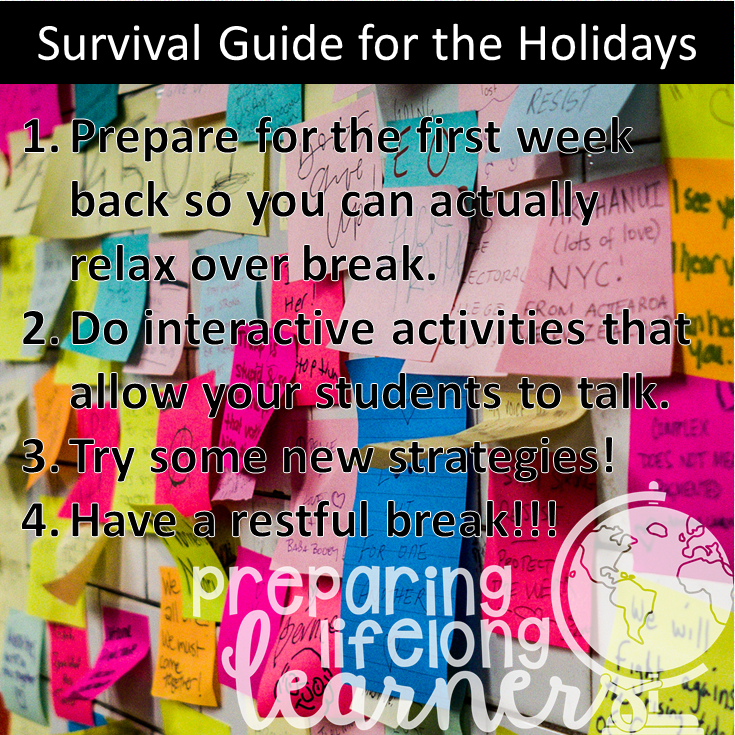|
It happens every year. Once the snow starts falling, my middle schoolers start going nuts. "When's break?" "Do we have to learn today?" "Will we have a snow day tomorrow?" start to replace questions like, "When did King Tut rule?" "Why are all these cultures polytheistic?" or "Which one had ziggurats again?"
I understand why they begin to shut down, I mean come on, two whole weeks off? But it still makes the time before break more, not less stressful. I am a firm believer that breaks, even Winter, Spring and Summer, come quicker and there are less discipline issues when kids stay engaged in and have fun with content. Instead of mindless word searches or crossword puzzles, I like to do activities that will help them make connections to and remember the content. Things like readers' theater plays, ancient writing activities (which are especially great for half days), and quick and easy, but interesting, map skills activities. Below are some of my favorites that I use every year as breaks approach. Click on them to see if they are right for you, and enjoy your well deserved break!
0 Comments
I love watching kids read. Watching them get into and excited about a new book or article or whatever is really great to see. At school, when I'd watch my students read selections out of textbooks or other readings in class, I very rarely saw that excitement. When I asked them why they looked so bored, they always had one of two responses, it was either 1) too hard, or, 2) too boring. Armed with these insights, I asked myself what I could do about it. My answer was to write short, interesting readings about what we were studying at two different reading levels so everyone could comprehend the critical content from the selection. Since then, I have written many sets of differentiated readings. Today, I'd like to highlight my English Colonization ones. This set includes selections about the Southern Colonies, the New England Colonies and the Southern Colonies. Each topic's selection is written at an Upper Elementary and Middle School grade level so the content is accessible to everyone. So, click the link below for my English Colonization Differentiated Readings which is also available as part of my European Colonization Bundle and as part of my American History Differentiated Reading Mega-Bundle. Also, don't forget to visit and follow my store for other great American History resources!
This week I want to highlight my Ancient Egypt Vocabulary Task Cards. This set is a great way to introduce the content vocabulary terms for a unit about Ancient Egypt. The terms included are: Nile, Flood, Mummy, Cataract, Valley of the Kings, Pharaoh, Tomb, Hieroglyphics, Upper Egypt, Lower Egypt, The Great Pyramids, Polytheism, Irrigation, Sarcophagus, Sphinx and Pyramid. I use each set of vocabulary cards to help my students make new connections between the words, their definitions, and images. Then students start to build connections between groups of words they create through cooperative debate and discussion. Once those connections have been established, my students deepen them by playing several different vocabulary games which I offer for FREE at my store! So, if you are looking for a fun way to help your students learn and make connections with Ancient Egyptian vocabulary terms, click the link below, and don't forget to take a look at the link for my FREE vocabulary games!
New Teachers (or Teachers who feel new), Congratulations! You've almost half way through the school year! If you're like I was at the beginning of my career, the following things probably ring true: 1. It's not at all like on TV. 2. It's a lot harder than you thought it would be. 3. You're starting to get the hang of it. 4. Just a few more easy weeks, then a nice, long and restful holiday season! Well, the first few are definitely true. But don't worry; everyone feels like that. The last one, though...
Well, remember how your students were right before Halloween? Multiply that by 10. So, here are some tips and strategies to try out or keep in mind as we all get geared up for a restful break: 1. Lesson plan and make copies for at least the first week after break so you can actually rest and re-charge during the break; you'll need it. 2. Plan less intense, more interactive activities that let your students talk - because they will anyway. Harness their talking for learning. 3. Don't be afraid to try something new. If it works - great! If it fails miserably, your students probably won't remember it after the holiday break anyway. 4. Lastly, relax over break. Teaching is hard, really hard, and all of us no mater how many years of experience we have need (and deserve) to rest and relax once in a while. Relax, and Happy Holidays, Tim. |
MEET TIMI'm an 18 year veteran teacher that loves teaching, coaching, writing, and my family.
Archives
May 2022
|

